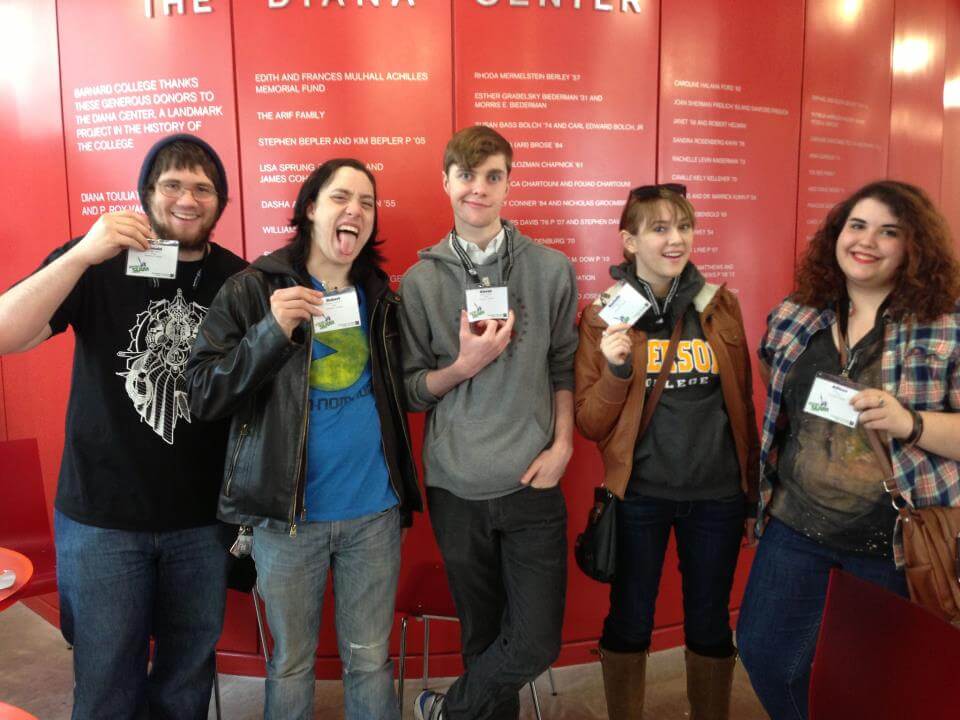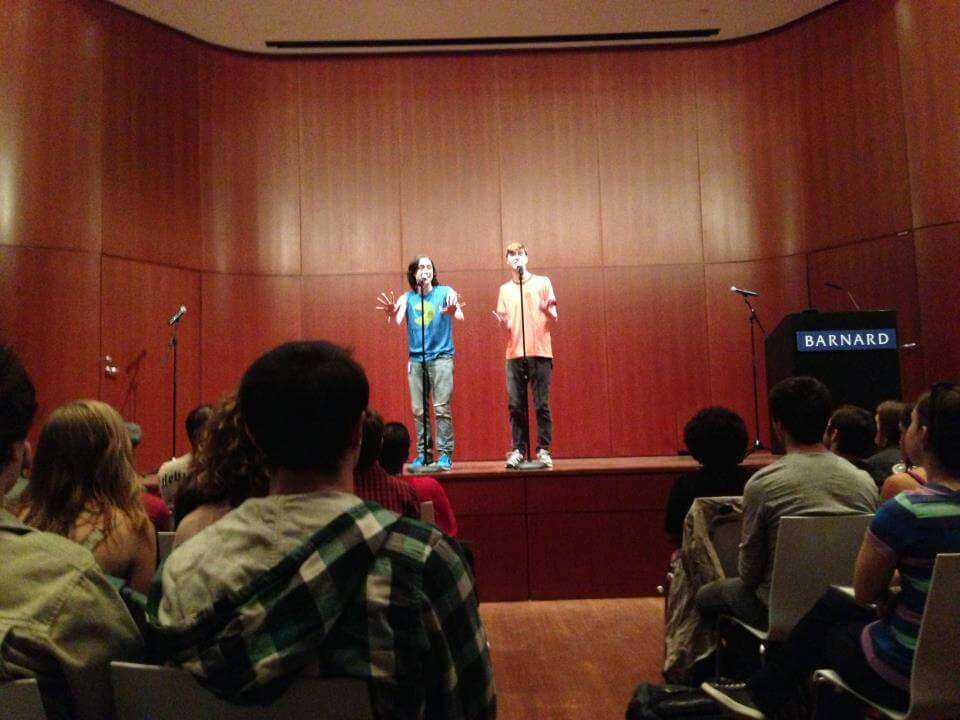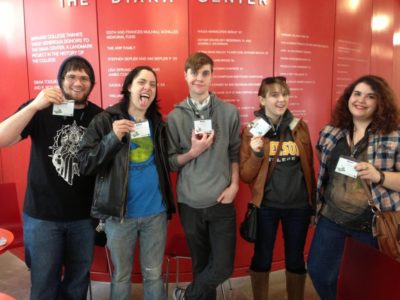Slam has revitalized interest in poetry. Maybe you have seen George Watsky perform his spoken word poetry, or Tom Hanks perform a slam poem on Jimmy Fallon, or even seen Sarah Kay perform her poetry during a TED talk. No matter where you have heard it, slam poetry is a growing trend all around the America.
Each year, the ACUI produces the College Unions Poetry Slam Invitational (CUPSI) offering an opportunity for colleges with Poetry Slam programs to compete for top honors and to share their artistry and voices.
This year CUPSI was held on April 3rd – 6th at Barnard College. Emerson College was represented by a team of five members: Rachelle Martin, Bobby Crawford, Kieran Collier, Donnie Welch and Allison Truj.
 (Martin is fourth from the left)
(Martin is fourth from the left)
According to Martin, the team has been practicing since January. “Our practices usually consist of either workshops or performance work. Work-shopping is for new poetry, which may need rewriting. Once you've written the final draft of your poem, you do performance work, which includes how you say it, act on stage, move, and memorization. There's also a fair bit of tweeting, eating Trader Joe's hummus, and gossiping about the latest slams we've all been to,” she says.
Martin says that her favorite thing about slam poetry is the feeling of community. Unlike a lot of other competitions, there's very little negative energy, she explains. “Don't get me wrong, there is some. But it's much different from sports rivalries or something. I've come across almost no aggression. We're all there to appreciate art and have feelings,” she tells us.

For Martin, performing is exciting, but a little scary too. “I get stage fright. Even in front of my team. Being nervous is good though. It's a sign of a healthy ego,” she says.
When asked about sources of inspiration, Martin says that her poetry is mostly personal, but focuses on societal issues as well. “I write a lot of personal poetry–relationships, etcetera. I also take time to write about sexism, because it's important, and slam is a great liberal venue to express your feeling on social justice stuff,” she says. “Lately I've been trying to be more complex with the poetry I write for class or for myself, and I hope I can get that to transfer over to slam work.”
Here are a few highlights from the 2013 CUPSI:



















